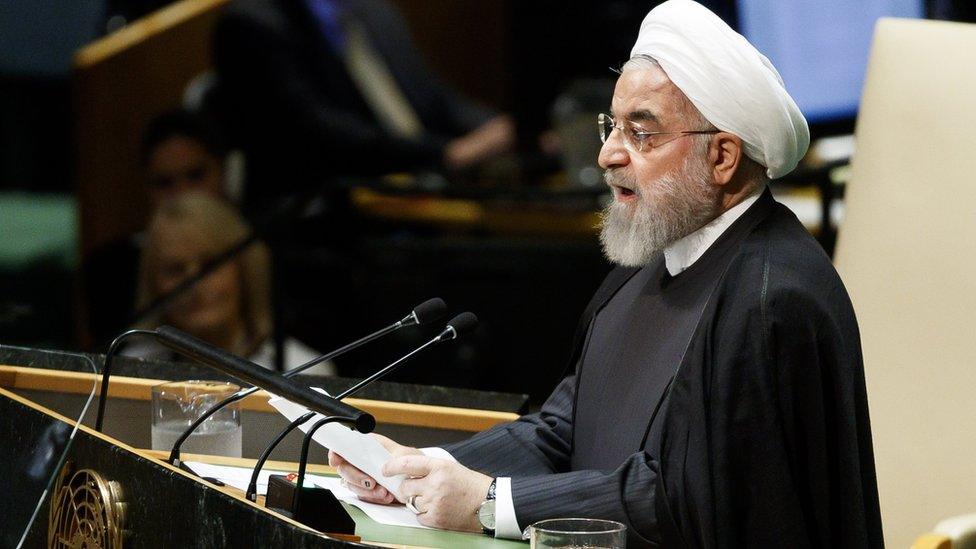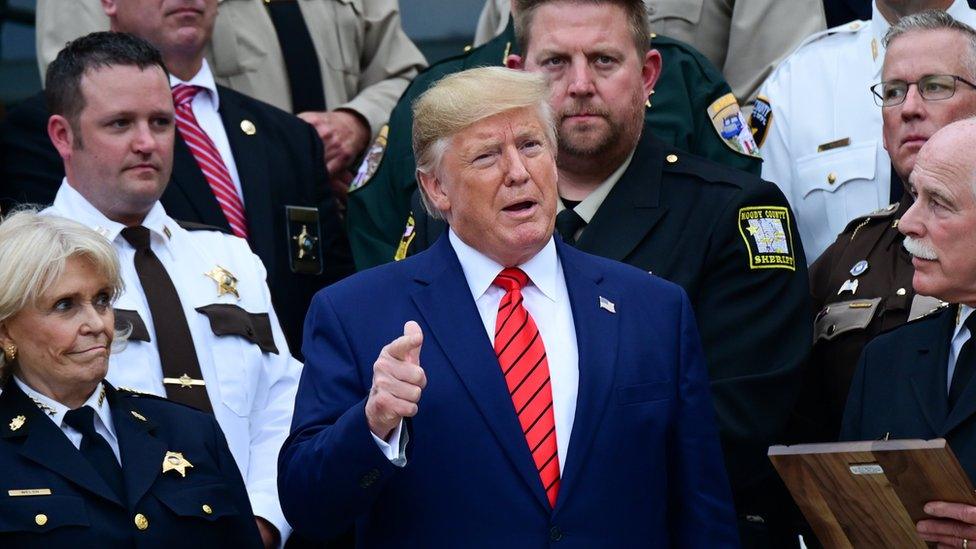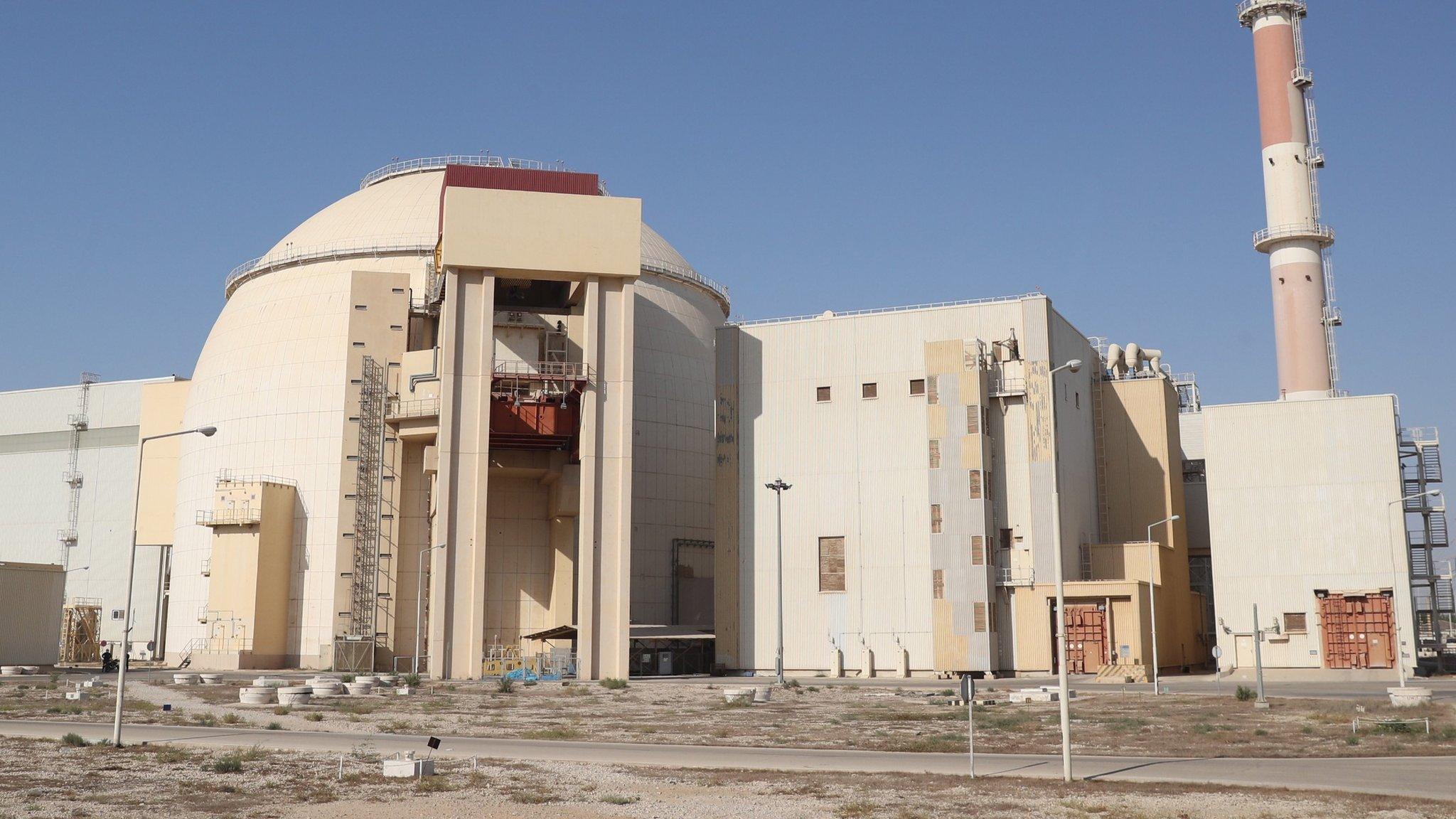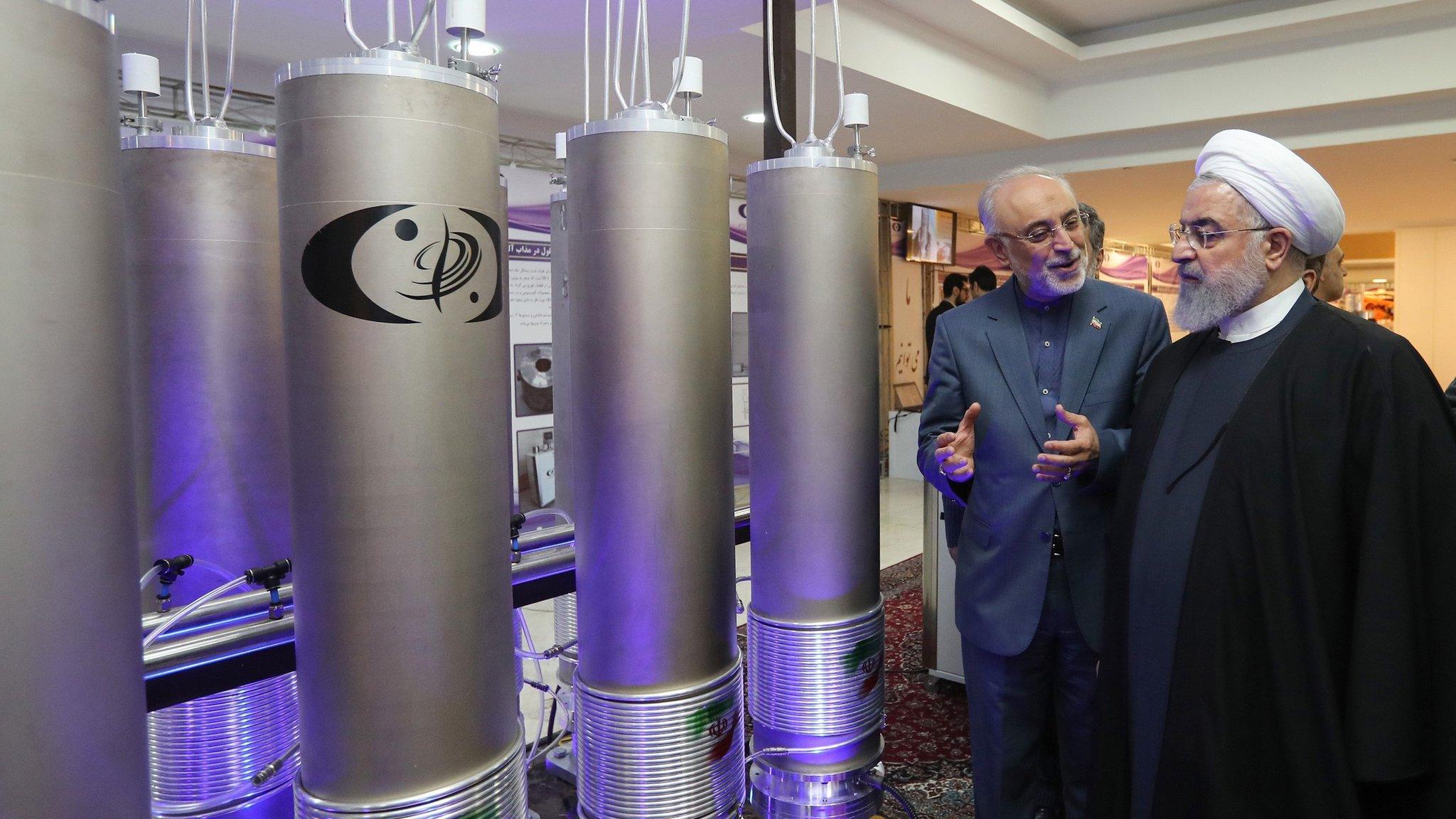Iran nuclear deal: EU nations warn Tehran over breaches
- Published

Iran says it will escalate its nuclear activities unless it gets relief from sanctions
Britain, France and Germany have warned Iran against any further breaches of the international nuclear deal signed in 2015, the BBC has learnt.
In New York on Thursday, the three EU signatories to the deal said they would trigger a special dispute mechanism if there were further violations.
Iran began breaching its commitments under the deal after the US abandoned it and imposed sanctions last year.
The UN nuclear watchdog has said Iran is using banned enrichment technology.
The warning was issued at a meeting with Iranian ministers on the fringes of the UN General Assembly, reports the BBC's James Landale at the UN.
If the dispute mechanism is triggered, the entire nuclear agreement could collapse and the UN could reinstate sanctions on Iran, which would be applied by all member states, our correspondent says.
This would have a devastating impact on the Iranian economy, he adds.
What is the Iran nuclear deal?
The deal was signed in 2015 by the three EU countries, as well as the US, Russia and China.
Although the agreement allowed Iran to accumulate small amounts of uranium for research, it banned the enrichment of uranium, which is used to make reactor fuel but also, potentially, nuclear weapons.

Donald Trump has been a vocal critic of the nuclear deal
Iran was also required to redesign a heavy-water reactor being built, whose spent fuel would contain plutonium suitable for a bomb, and to allow international inspections.
Iran has consistently denied accusations that it is seeking nuclear weapons and says its nuclear programme is purely for peaceful purposes.
Feeling the squeeze: Iran sanctions explained
The agreement was hailed as a landmark - but in May 2018, President Donald Trump abandoned the deal, which he criticised as flawed, and reinstated US sanctions.
In May, the US tightened its sanctions against Iran and said it would attempt to force all countries to stop buying Iranian oil and put pressure on Iran to negotiate a new nuclear accord.
After the sanctions were tightened, Iran stopped abiding by some of its commitments to pressure the remaining signatories to find a way to provide sanctions relief.
The IAEA confirmed on 1 July that Iran had breached the 300kg (660lb) limit on the amount of low-enriched uranium it was allowed to stockpile.
Six days later, Iran began enriching uranium to a level beyond that which it was allowed to under the nuclear deal, though it is still far off what is required to create fissile material for a nuclear weapon.
- Published16 November 2021

- Published30 April 2021
